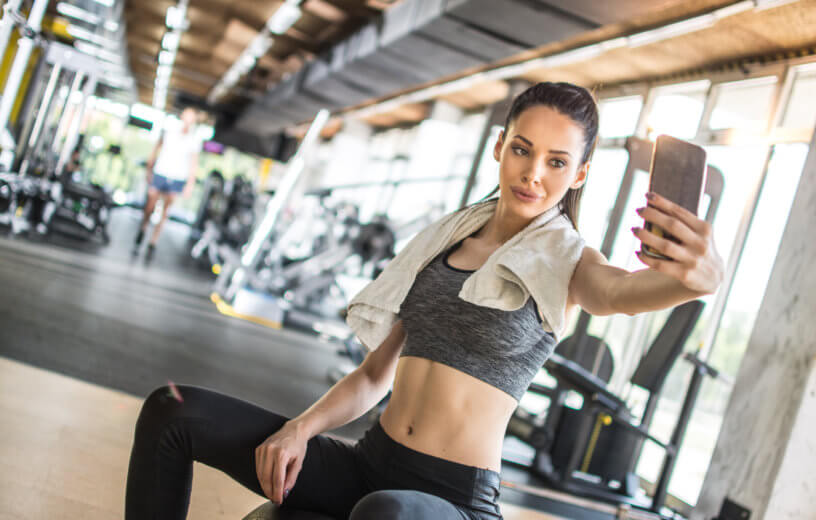ADELAIDE, Australia — Life can appear incredibly simple on Instagram. Good times, delicious meals, and beautiful people usually make up the majority of popular posts on the social media platform. Fitness “influencers,” or popular accounts often paid to promote certain products, are especially prevalent. Many of these accounts promote the #fitspiration hashtag as a way to inspire others to get in the gym and achieve the type of body they’re constantly showing off online. But the movement apparently isn’t as inspiring as it sounds, a new study finds.
Unfortunately, according to researchers at Flinders University, the #fitspiration hashtag has largely backfired, especially among women. When the average woman logs on and sees endless images of ultra fit and seemingly perfectly proportioned women telling them to “train like a beast, look like a beauty” or “rise and grind,” it’s really more deflating than motivational.
Over 100 women between the ages of 17 and 25 took part in the study. Across the board, these women reported being in a worse mood and more unhappy with their own bodies after browsing Instagram posts featuring the #fitspiration hashtag. Moreover, those posts really didn’t seem to make them want to visit a gym all that much more than usual.
“When considering actual exercise behaviour, there appears to be no beneficial effect,” says Dr. Ivanka Prichard, co-deputy director of the SHAPE Research Centre (Sport, Health, Activity, Performance and Exercise) at Flinders University, in a release. “Despite their positive intentions and popularity, #fitspiration images are yet another way to make women feel worse about themselves and their bodies.”
“Close to 90% of young Australians use some form of social media, such as Facebook, Instagram, YouTube or Snapchat. Young women’s rapidly growing use of image-based platforms such as Instagram is of concern, given what we know about the impact of idealized imagery on body image,” she continues. “One of the most consistent and influential forces on young women’s body image is the media’s depiction of idealized and often unobtainable body types such as a thin and fit ideal.”
While Instagram is obviously a relatively new phenomenon, the image of the “perfect woman” being perpetuated by popular culture certainly isn’t anything new. It’s been happening in television and motion pictures for decades.
The same participating women didn’t react nearly as negatively to being shown various “inspirational” travel posts. So, it’s clear that these fitness posts hit a specific nerve.
Some of the women involved in the study were asked to actually exercise after viewing the #fitspiration images. These subjects did report feeling like they “worked harder,” during their workout, but in reality they didn’t stay on a treadmill any longer than other women who looked at travel posts before visiting a gym.
Exercise did seem to mitigate some of the negative effects of the fitness posts, with most women reporting that they felt better after getting a workout in, regarding both their own body image and overall mood. Among the participants who only browsed fitness posts and didn’t exercise afterwards, they were generally back to feeling normal after a period of quiet rest.
“These findings provide further evidence highlighting fitspiration and aspiring to a thin and fit ideal as a potentially harmful online trend,” Dr. Prichard concludes. “We now need more research to examine aspects of fitspiration, such as focusing on body functionality and body diversity, that might promote positive body image.”
The study is published in Body Image.
